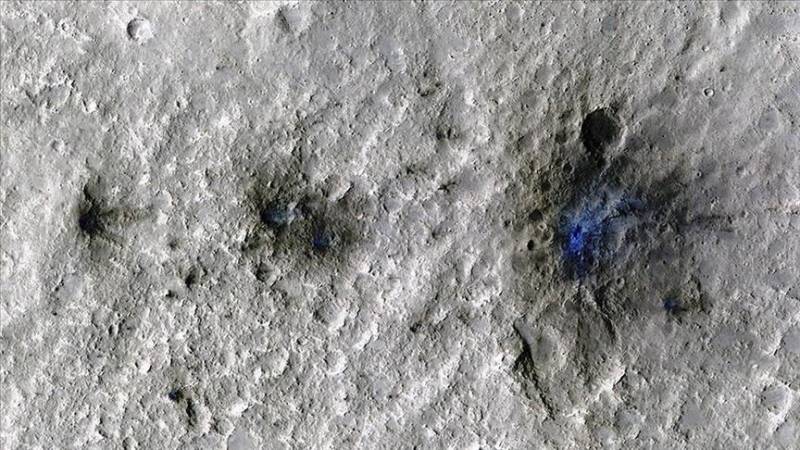NASA’s InSight lander has detected seismic waves from four space rocks that crashed on Mars in 2020 and 2021, representing the first impacts detected by the spacecraft’s seismometer since it touched down on the Red Planet in 2018.
In a statement, NASA said it was the first time seismic and acoustic waves from an impact were detected on Mars.
A new paper published Monday in Nature Geoscience details the impacts, which ranged between 53 and 180 miles (85 and 290 kilometers) from InSight’s location, a region of Mars called Elysium Planitia.
The first of the four confirmed meteoroids – the term used for space rocks before they hit the ground – made the most dramatic entrance: It entered Mars’ atmosphere on Sept. 5, 2021, exploding into at least three shards that each left a crater behind.
“After three years of InSight waiting to detect an impact, those craters looked beautiful,” said Ingrid Daubar of Brown University, a co-author of the paper and a specialist in Mars impacts.
Seismic data offers various clues that will help researchers better understand Mars. Most marsquakes (quakes on Mars) are caused by subsurface rocks cracking from heat and pressure, according to the US agency for space exploration. Studying how the resulting seismic waves change as they move through different materials provides scientists with a way to study Mars’ crust, mantle, and core.
According to NASA, scientists can approximate the age of a planet’s surface by counting its impact craters: The more they see, the older the surface. By calibrating their statistical models based on how often they see impacts occurring now, scientists can then estimate how many more impacts happened earlier in the solar system’s history.
“Impacts are the clocks of the solar system,” said the paper’s lead author, Raphael Garcia of University of Toulouse’s ISAE-SUPAERO Institute of Aeronautics and Space. “We need to know the impact rate today to estimate the age of different surfaces.”






